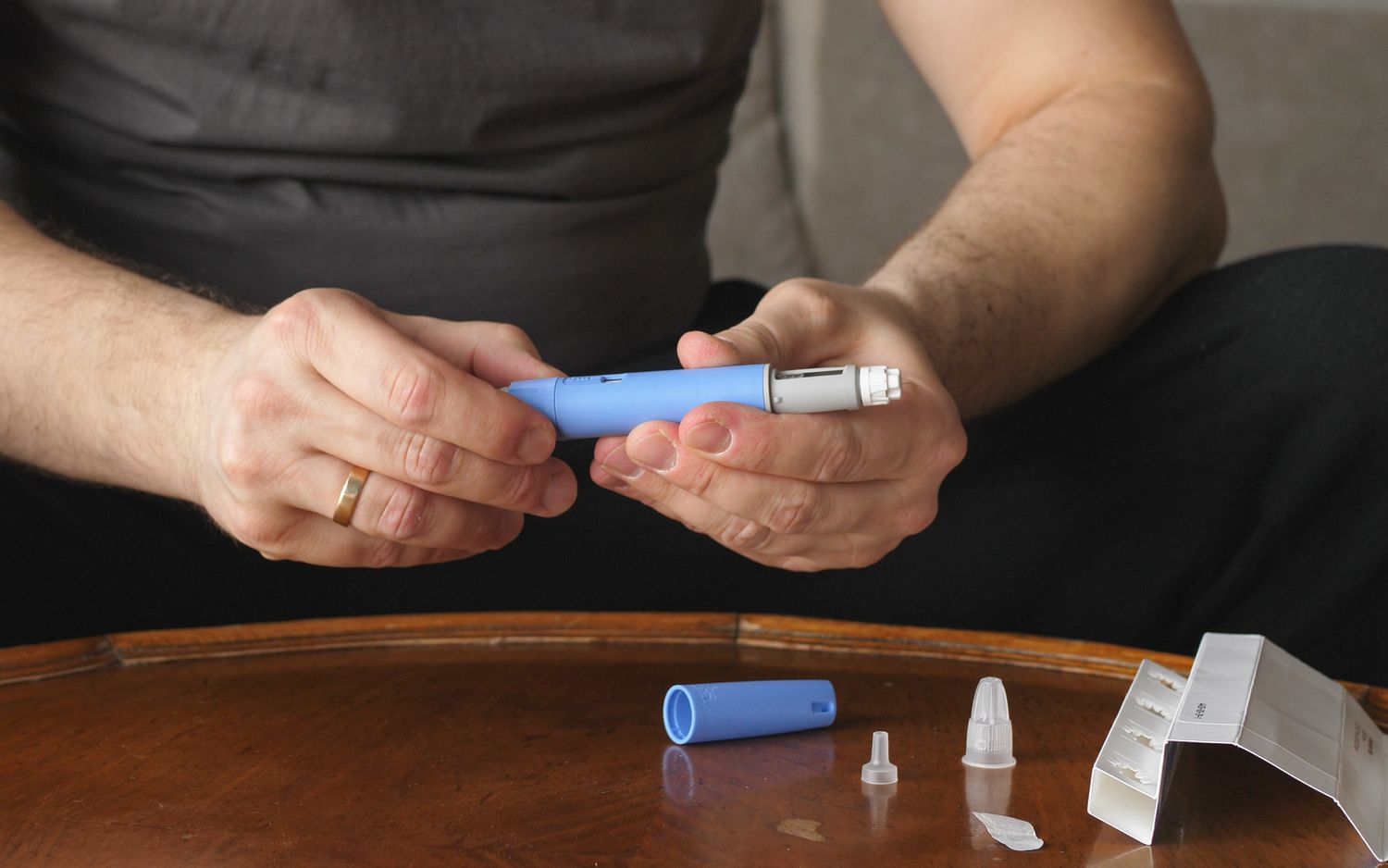Exploring the Potential of Ozempic as a Solution for Addiction: Insights from Researchers

Researchers are investigating the potential anti-addiction effects of weight loss medications, with early studies suggesting that anti-obesity injections like Ozempic may also help curb alcohol cravings in people with both obesity and alcohol use disorder (AUD).
If further research demonstrates that the drugs — originally used to control type 2 diabetes and subsequently approved for obesity treatment — are effective in treating AUD, they could become a much-needed tool in substance use medicine. In the United States, almost 30 million people over the age of 12 have AUD, and annually, 140,000 people die of causes related to the disorder.
"We need more medications. AUD is a common disease, and only four medications are currently available," says Elisabet Jerlhag Holm, a professor of pharmacology at the University of Gothenburg in Sweden, who studies the Gut-Brain Axis and Addictive Disorders, adding that three medications — Disulfiram, Naltrexone, and Acamprosate — are approved by the Food and Drug Administration (FDA) for use in the United States.
According to physician-scientist Lorenzo Leggio, who is leading the National Institute on Alcohol Abuse and Alcoholism (NIAAA) and the National Institute on Drug Abuse's (NIDA) work on GLP-1 and alcohol drinking, the current medications are underutilized and don't work for everyone, highlighting the need for more options. "These medications are not a magic bullet. Some people respond and others do not," he notes, underscoring that AUD is a disease, just like cancer or hypertension. "For any other condition, we have dozens of medications that we can choose from," Leggio adds. "But for AUD, we only have three approved by the FDA. We need more for when patients don't respond to one."
In a rat study published in The Lancet, Holm and her team found that a semaglutide drug binds to an area of the brain called the nucleus accumbens that is critical for reward. In humans, this part of the brain releases dopamine when a person drinks alcohol, and the team concluded that by acting on this part of the brain, the drug reduced both alcohol intake and relapse drinking by reducing the feeling of reward associated with alcohol. Preventing relapse drinking is critical for successful long-term AUD treatment.
"If one consumes a lot of alcohol and then abstains for a period, an AUD patient has lots of craving for alcohol, and this causes the individual to relapse to alcohol drinking," Holm says. "When this happens, more alcohol is consumed than before." While craving-driven relapse behavior is difficult to study in rodents, Holm cautions that not all findings from animal studies should apply to humans. However, such findings are the first step in understanding how drugs may work in people.
So far, very little research has investigated how GLP-1s impact the human brain in terms of AUD. One randomized, double-blinded, placebo-controlled clinical trial published in 2022 included 127 human participants who had AUD and were seeking treatment. Over 26 weeks, participants received either two milligrams weekly of exenatide, a GLP-1 used as a therapy for type 2 diabetes but not approved for weight loss, or a placebo. Both groups received cognitive-behavioral therapy. At the study's end, only those participants who were both overweight and had AUD reported a decrease in alcohol intake.
"It could be that different neurobiology underlies overweight AUD patients compared to those with a regular weight, but we don't know yet," Holm says. Nonetheless, the results of this current research point clearly to those most likely to benefit from the treatment if it proves both safe and effective for weight loss. According to Holm, individuals who aren't overweight are more likely to experience adverse side effects from using GLP-1 drugs for AUD.
It's still far too early to say whether weight loss drugs like Ozempic and Wegovy will surpass currently used AUD medications. Future studies will need to compare weight loss drugs to those used for AUD in side-by-side trials, Holm says. Nonetheless, the current research is highly promising. "The preclinical models we used have high validity; that is, what we observed in rodents was also observed in humans," she notes. Leggio calls the finding that early studies have shown the drugs may be effective in people with both AUD and obesity "a critical finding."
“The exenatide trial showed that it works in some patients, which is critical in medication development,” he said. “If we look for medication that will work in everybody, we will always fail. Part of the goal of medication development is finding the right medication for the right patient.”
He noted that this was a secondary finding of the trial, which is completely normal for early science, but that future studies will need to look at using semaglutides and GLP-1s specifically in people with both AUD and obesity to confirm these findings.
They will also need to confirm that the weight loss among these people is, indeed, fat loss, rather than muscle loss, which would be unhealthy.
“We are beyond excited about the work we have done and are going to do on GLP-1 and addiction,” Leggio said. “But the next step is to move forward with the gold standard clinical trials as the truly needed next step to show that these medications work or do not work.”




